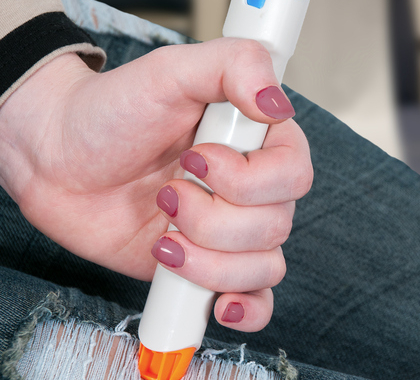Residents of California and Massachusetts filed a federal class-action lawsuit against EpiPen developer Mylan for allegedly gouging customers who depend on the lifesaving allergy medication auto-injector.
“At the heart of this proposed class action is a pharmaceutical corporation seeking to boost profits at the expense of families who need the lifesaving product it sells,” states the complaint in Corcoran v. Mylan Pharmaceuticals, filed in a California federal court on October 17, 2016.
The price of an EpiPen 2-Pak containing two 0.3 milligram epinephrine auto-injectors increased from $94 in 2007 to $600 in 2016 and currently costs Mylan less than $35 to produce, the complaint states, according to the legal and business news website The Recorder.
Consumers filed a separate lawsuit against Mylan in a Michigan federal court over the company’s requirement EpiPens be sold in packs of two, Courthouse News Service reported in August.
In an unrelated dispute, Mylan has agreed to pay the U.S. Department of Justice $465 million to settle allegations the company submitted false Medicaid claims for reimbursement for EpiPens, Mylan announced in a press release on October 7, 2016.
Government-Mandated Monopoly
Dr. Meg Edison, a pediatrician in private practice in Grand Rapids, Michigan, says government interference in the drug market enabled Mylan to gouge consumers.
“The [U.S. Food and Drug Administration] has allowed a Mylan a monopoly on the epinephrine delivery system,” Edison said. “Armed with that monopoly, Mylan then used family political connections to mandate schools purchase that product.”
After using government mandates to create a market for EpiPen, Mylan secured state Medicaid programs as guaranteed payers, Edison says.
“They also lobbied states to require Medicaid coverage of the product,” Edison said “With so many entities required to purchase the monopoly product, it was the perfect environment to raise prices with impunity.”
FDA Suppressing Competition
Dr. Mike Koriwchak, board vice president at Docs4PatientCare Foundation, says the U.S. Food and Drug Administration’s (FDA) slow approval process prevents drug developers from bringing EpiPen competitors to market.
“The FDA is dragging their feet on so many on drug applications, including generic drug applications,” Koriwchak said. “Mylan enjoys a near-monopoly on epinephrine auto-injectors. With no competition, there is no reason for the price to be forced downward, so the price goes up.”
‘Perverse Structure’
Mylan and other companies increase their drug prices to enable them to give larger rebates to third-party administrators who help distribute the drugs, Koriwchak says.
“The problem is that the patients are really out of the loop,” Koriwchak said. “They aren’t the customers. The pharmacy benefits managers are the customers. The drug manufacturers don’t compete for the favor of patients; they compete for the favor of [pharmacy benefits managers]. When rebates go up, prices go up.
“You have the perverse structure that literally turns compensation based on price upside down,” Koriwchak said.
Internet Info:
Michael Hamilton, “Meg Edison: A Free-Market Pediatrician and Mom’s View of EpiPen ‘Gouging,'” Health Care News Podcast, The Heartland Institute, September 1, 2016.
Image via Thinkstock




